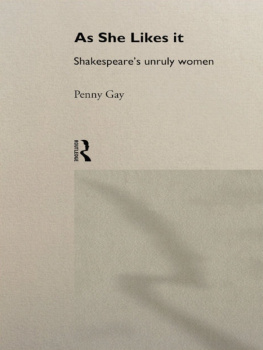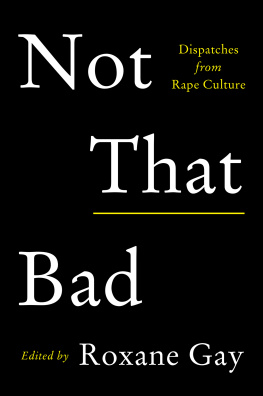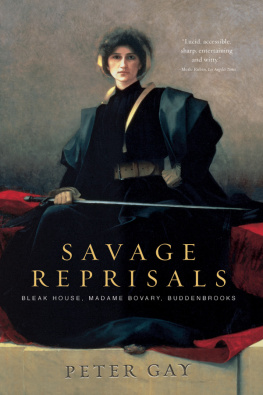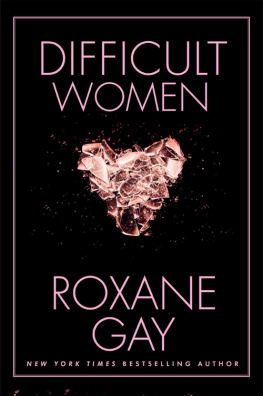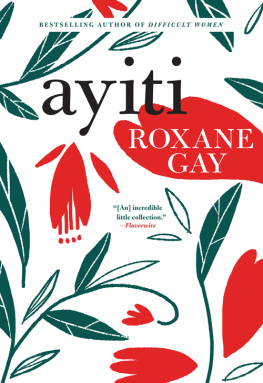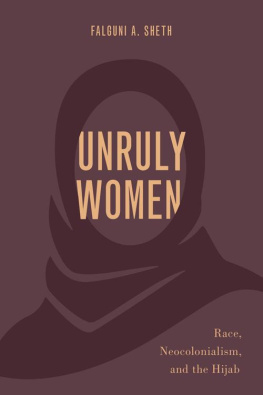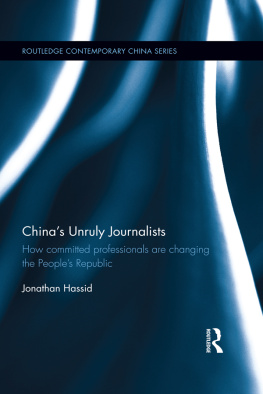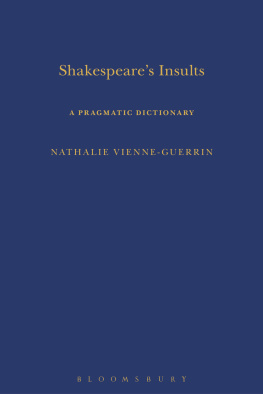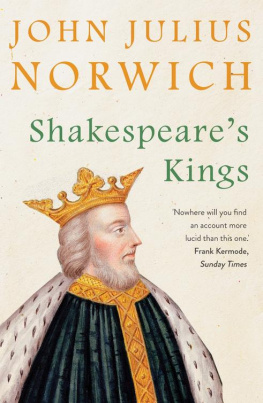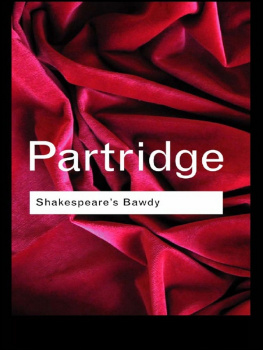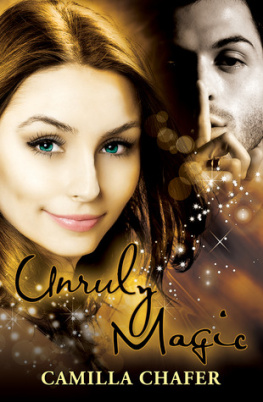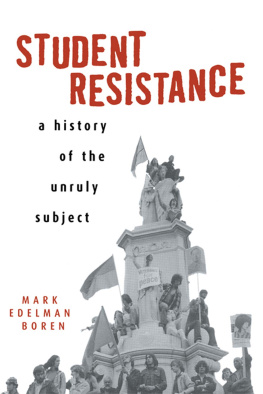Gay - As she likes it: Shakespeares unruly women
Here you can read online Gay - As she likes it: Shakespeares unruly women full text of the book (entire story) in english for free. Download pdf and epub, get meaning, cover and reviews about this ebook. year: 2011, publisher: Taylor and Francis;Routledge, genre: Romance novel. Description of the work, (preface) as well as reviews are available. Best literature library LitArk.com created for fans of good reading and offers a wide selection of genres:
Romance novel
Science fiction
Adventure
Detective
Science
History
Home and family
Prose
Art
Politics
Computer
Non-fiction
Religion
Business
Children
Humor
Choose a favorite category and find really read worthwhile books. Enjoy immersion in the world of imagination, feel the emotions of the characters or learn something new for yourself, make an fascinating discovery.
- Book:As she likes it: Shakespeares unruly women
- Author:
- Publisher:Taylor and Francis;Routledge
- Genre:
- Year:2011
- Rating:4 / 5
- Favourites:Add to favourites
- Your mark:
- 80
- 1
- 2
- 3
- 4
- 5
As she likes it: Shakespeares unruly women: summary, description and annotation
We offer to read an annotation, description, summary or preface (depends on what the author of the book "As she likes it: Shakespeares unruly women" wrote himself). If you haven't found the necessary information about the book — write in the comments, we will try to find it.
Gay: author's other books
Who wrote As she likes it: Shakespeares unruly women? Find out the surname, the name of the author of the book and a list of all author's works by series.
As she likes it: Shakespeares unruly women — read online for free the complete book (whole text) full work
Below is the text of the book, divided by pages. System saving the place of the last page read, allows you to conveniently read the book "As she likes it: Shakespeares unruly women" online for free, without having to search again every time where you left off. Put a bookmark, and you can go to the page where you finished reading at any time.
Font size:
Interval:
Bookmark:

London and New York
First published 1994
by Routledge
11 New Fetter Lane, London EC4P 4EE
This edition published in the Taylor & Francis e-Library, 2002.
Simultaneously published in the USA and Canada
by Routledge
29 West 35th Street, New York, NY 10001
1994 Penny Gay
All rights reserved. No part of this book may be reprinted or reproduced or utilized in any form or by any electronic, mechanical, or other means, now known or hereafter invented, including photocopying and recording, or in any information storage or retrieval system, without permission in writing from the publishers.
British Library Cataloguing in Publication Data
A catalogue record for this book is available from the British Library
Library of Congress Cataloguing in Publication Data
Gay, Penny
As She Likes It: Shakespeares Unruly Women/Penny Gay.
p. cm. (Gender in Performance)
Includes bibliographical references and index.
1. Shakespeare, William, 15641616CharactersWomen.
2. Shakespeare, William, 15641616Political and social
views. 3. Feminism and literatureEnglandHistory
16th century. 4. Feminism and literatureEngland
History17th century. 5. Women and literature
EnglandHistory16th century. 6. Women and
literatureEnglandHistory17th century. 7.
Shakespeare, William, 15641616Comedies 8. Women in
literature. 9. Comedy.
I. Title. II. Series.
PR2991.G38 1994
822.3 3dc20 9340997
ISBN 0-415-09695-2 (hbk)
ISBN 0-415-09696-0 (pbk)
ISBN 0-203-20087-X Master e-book ISBN
ISBN 0-203-20090-X (Glassbook Format)
As She Likes It tackles the question of how the unruly women at the centre of Shakespeares comedies have been embodied in performance.
Unique amongst both Shakespearean and feminist studies, As She Likes It asks how gender politics affect the production of the comedies, and how gender is represented, both in the text and on the stage. Penny Gay takes a fascinating look at the way Twelfth Night, The Taming of the Shrew, Much Ado About Nothing, As You Like It and Measure for Measure have been staged over the last half-century, when perceptions of gender roles have undergone massive changes. She also interrogates, rigorously and thoughtfully, the relationship between a male theatrical establishment and a burgeoning feminist approach to performance.
As illuminating for practitioners as it will be enjoyable and useful for students, As She Likes It will be critical reading for anyone interested in womens experience of theatre.
Penny Gay is a Senior Lecturer in English and Performance Studies at the University of Sydney. She has produced and acted in numerous university Shakespeare performances.
The Gender in Performance series reflects the dynamic and innovative work by feminists across the disciplines. Exploring both historical and contemporary theatre the series seeks to understand performance both as a cultural and a political phenomenon.
Also available:
CONTEMPORARY FEMINIST THEATRES
To each her own
Lizbeth Goodman
ACTRESSES AS WORKING WOMEN
Their social identity in Victorian culture
Tracy C.Davis
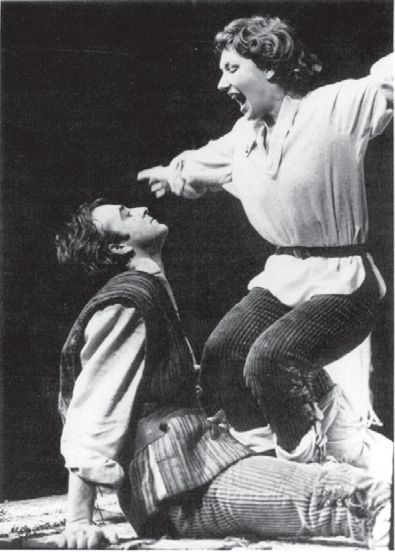
Susan Fleetwood as Rosalind, John Bowe as Orlando, As You Like It, 1980, directed by Terry Hands. Photograph: Reg Wilson.
To a young Australian postgraduate student arriving in London in the late 1960s, the theatrical experiences on offer were, as we used to say, mind-blowing. There wasnt much Shakespeare on in Sydney or Melbourne in the 1950s and 1960s: in particular, I had never seen a Shakespearean comedyI had never laughed at a Shakespearean joke, nor been moved by a Renaissance image of young lovers rejoicing in their future.
What astonished meand still does todaywas the power of performance to make alive and infinitely varied those over-studied texts. As the 1960s turned into the 1970s, and we all became caught up in the social revolution instigated by the new wave of feminism, I became more and more fascinated by the performances of women in Shakespeareespecially in the comedies, which (with few exceptions) centre on female characters, and give them a great deal more to say than do either the tragedies or the histories (the Cleopatra play always excepted). Yet it was these latter two categories which were considered by my teachersboth at school and at universityas important, serious, dealing as they did with weighty matters of politics, government, and religion, and offering us poetic meditations on life. That this was a male-imposed cultural perspective, which elevated mens experience and interests and devalued womens as secondary and inferior, only became evident as feminist literary theory developed in the late 1970s.
Feminist theorising about theatre and performance has come even later on the scene, and is still in its early days. I hope that this analysis of five Shakespearean comedies in performance may make some contribution to it, as a set of case studies of the way gender (and other) divisions in British society of the past fifty years are reproduced, or challenged, by their embodiment in actresses and actors performing these classic texts. The Royal Shakespeare Company is unique in its concentration on Shakespeareon average, each play is done once every five yearsand it is itself the national monument of the national writer. To study its performance of Shakespearean comedy is to encounter a continuing dialectic between theatre practice and English social and political history, since theatre will always in some way reflect the general culture of which it is a part.
I begin my study of each play after the Second World War, in order to provide a context for the developments of the last twenty-five years, of which I have been a fascinated witness. The two most popular transvestite comediesTwelfth Night and As You Like It were an obvious choice, since every production, whatever its other emphases, will unavoidably foreground the question of what is proper feminine behaviour. To balance these, I look at three of the most commonly performed woman-centred comedies in which the heroine does not get into male dressThe Taming of the Shrew, Much Ado About Nothing, and Measure for Measure. Each of these three plays has a problematic woman at its centreone who is too talkative, or who behaves in a way that denies patriarchal authority. In all five plays the disruptive behaviour of the heroine is finally contained by the prospect of marriageor so the text indicates. In performance it may be otherwise.
Plays exist most fully in performance, and classic plays such as these exist in a historical continuum of performance. This book is an attempt to write theatre history from a feminist point of view, and thereby to provide new points of entry for those who are reading, watching and thinking about Shakespeare.
The research for this book was undertaken, during several periods of study leave from Sydney University, at the Shakespeare Centre Library, Stratford-upon-Avon. I am grateful to the librarians of that unique institution, especially Sylvia Morris and Mary White, for their unfailing helpfulness and erudition. The staff of the Performing Arts Library, the Sydney Opera House, were equally helpful at the tidying-up stage. Talia Rodgers at Routledge and the series editors, Susan Bassnett and Tracey Davis, provided the enthusiastic support and judicious commentary that every author needs. I also wish to express my thanks to the Academic Board of the University of Sydney for granting me a years leave from teaching in order to undertake the research. Colleagues and students in the Department of English and the Centre for Performance Studies, University of Sydney, provided a supportive environment and occasional inspiration in discussion of the books general issues, as did my family. A special thanks must go to Meg Gay, reader, editor and caterer extraordinaire.
Font size:
Interval:
Bookmark:
Similar books «As she likes it: Shakespeares unruly women»
Look at similar books to As she likes it: Shakespeares unruly women. We have selected literature similar in name and meaning in the hope of providing readers with more options to find new, interesting, not yet read works.
Discussion, reviews of the book As she likes it: Shakespeares unruly women and just readers' own opinions. Leave your comments, write what you think about the work, its meaning or the main characters. Specify what exactly you liked and what you didn't like, and why you think so.

